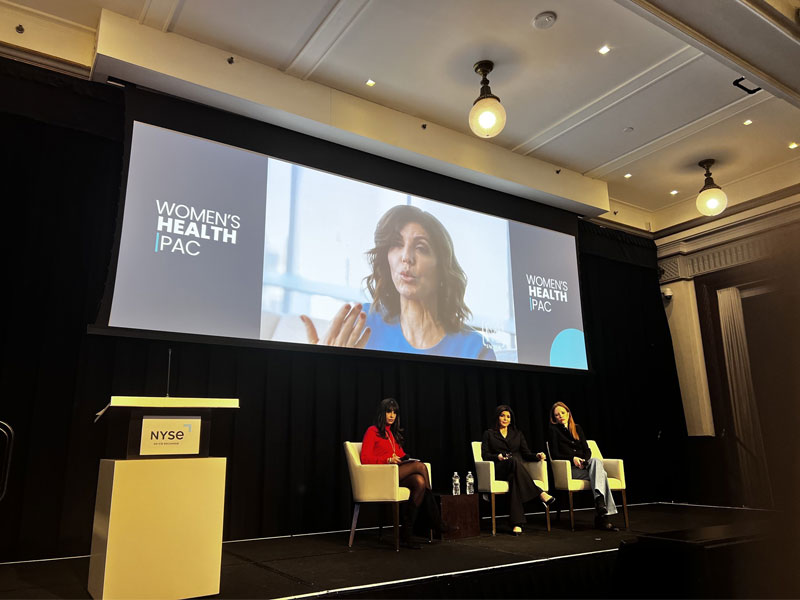Women’s Health PAC (WHPAC), the first bipartisan organization dedicated to bridging the political divide to support increased funding, research, and innovation in women’s health, has officially announced its growth plans for 2025, including the inaugural Bipartisan Women’s Health Reimbursement Summit, which is set to be held in New York on March 4th.
According to certain reports, this invite-only summit will call upon a select group of key stakeholders from across the healthcare spectrum for a focused work session which, on its part, will uncover the critical reimbursement changes needed to accelerate growth, innovation, and investment in women’s health.
“The Women’s Health PAC represents a powerful convergence of entrepreneurial innovation and policy expertise. Since its inception, I’ve watched this organization leverage startup-style agility to tackle healthcare’s most pressing challenges. What sets them apart is their genuine bipartisan approach to women’s health – a critically underfunded sector that demands immediate attention,” said Anu Duggal, Founding Partner of Female Founder’s Fund,
Taking a deeper view of what this summit will try and address, we begin from its plans to resolve current system failures. These failures include out-of-pocket costs for preventive care, complex billing barriers, and lower reimbursement rates in terms of OB-GYN services compared to other specialties.
Next up, WHPAC’s survey will fill up the investment gap currently plaguing the women’s health space. You see, reimbursement inefficiencies have historically kept venture capital and research funding from flowing into the healthcare ecosystem, thus limiting innovation in women’s health.
Another focal point of the summit will be to conceive a systemic reform. By that, the idea is to overcome individual issues, and therefore, tackle fundamental reimbursement problems affecting all women’s health services.
WHPAC will also take the given opportunity to foster stakeholder collaboration. This includes uniting clinicians, payers, innovators, policy leaders, hospital systems, RUC Committee, and CMS representatives.
Markedly enough, the summit is expected to eventually generate actionable policy recommendations that published in partnership with the Women’s Health Foundation as “The Path to Bigger and Stronger Families: A Policy Roadmap for Women’s Health Reimbursement Reform.” In case you weren’t aware, the stated lowdown also makes for the first-ever comprehensive policy roadmap focused exclusively on women’s health reimbursement so to guide future discussions with the current administration, including HHS and CMS.
“The main issue we’ve heard throughout the last 8 months from WHPAC stakeholders is the dire state of women’s health reimbursement. We’re seeing rural labor and delivery units close and critical services like well-woman care and cancer treatment become increasingly inaccessible. Every conversation we’ve had with doctors, hospital administrators, investors and innovators points to reimbursement as the root cause. That’s why we’re taking this fight to Washington – because fixing the system means increasing access, keeping doctors in the field, doors open and improving outcomes for all women,” said Jodi Neuhauser, co-founder of Women’s Health PAC
Among other goals for 2025, WHPAC hopes to start a visionary membership-based organization with the ambition to become a $900 million movement that redefines the landscape of women’s health. The purpose of this organization will be to harness the collective power of millions to drive systemic policy change, accelerate innovation, and deliver measurable health outcomes for women nationwide.
Next up, WHPAC also aims to grow its overall members, by 2026, to 1.5 million, (representing 1% of the U.S. female population).
Beyond that, the organization will complete its already-announced strategic merger with Doctors for Fertility PAC, founded by physicians to advocate for IVF and reproductive care access. The stated merger should strengthen collaboration among leading women’s health organizations to drive impactful policy change and improve health outcomes nationwide.
“We were incredibly impressed with the rapid impact WHPAC has made in just a few short months. Their strategic approach, bipartisan focus, and commitment to meaningful policy change convinced us they were the right team to continue advocating for fertility access and reproductive health policy on our behalf. We are excited to join forces and work together to build and strengthen families and improve health outcomes for women in 2025 and beyond,” said Serena H Chen MD, and Stephanie Gustin MD, Doctors For Fertility PAC’s Founding Board members.



















